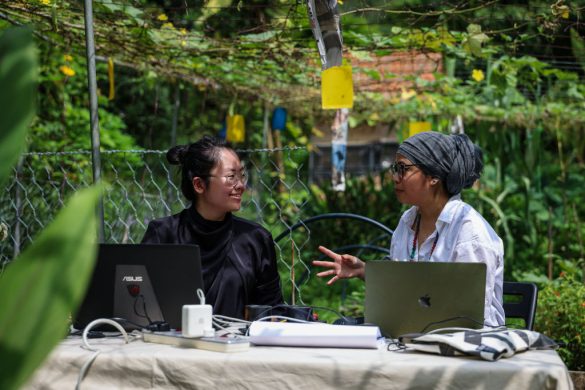The Zimbabwean government has reportedly dismissed over one thousand polling officers and accredited election monitors, ahead of Thursdays (todays) parliamentary elections, on allegations that they support the opposition Movement for Democratic Change (MDC), IRIN reports.
The MDC and some civil society organisations said they were shocked by the expulsion on Monday of 800 election monitors from Mashonaland East province by governor David Karimanzira and Ray Kaukonde, the parliamentary candidate for the ruling ZANU-PF party.
According to the pro-government Daily Mirror, the monitors, mainly teachers, were ordered to leave the northern province as they prepared to go to their assigned polling stations. The monitors have since been redeployed around voting centres in the capital, Harare.
Neither Karimanzira nor Kaukonde were willing to comment on the issue, but both men had reportedly accused the teachers of being active supporters of the MDC – a view of the profession generally held by ZANU-PF.
In Gwanda, in Matabeleland South province, five people who had been appointed and accredited were reportedly dropped just before deployment, also on accusations of being “enemies of the state”.
The five include two schoolteachers, two college lecturers and one civil society activist. David Magagula, one of the victims, told IRIN that he had received an anonymous call telling him not to report for the final pre-deployment session on Friday morning.
– The caller did not identify himself – he just told me that it had been decided that I could not go on with polling duties because I am an enemy of the state. He told me to pass the message on to some of my colleagues, who were also dropped on the same allegations, said Magagula.
Roughly 25.000 polling officers will be on duty on election day, drawn mainly from the civil service.
Registrar-General Tobaiwa Mudede told IRIN it was up to electoral supervisory officers to decide who could take up poll-related duties.
– I cannot confirm the expulsions, but we know there are many opposition supporters in the civil service from which these monitors are drawn. But it is up to electoral supervisory officials to make their own assessments, and judge who can take part in polling supervision. It is a process that requires careful management, so anyone with known political inclinations simply cannot be a polling or presiding officer, said Mudede.
Meanwhile, the Zimbabwe Electoral Commission (ZEC) chairman, retired judge George Chiweshe, told IRIN on Wednesday that everything was in place for holding a successful ballot.
– We have established exactly 8.256 polling stations around the country, and this is much more than the 4.000 polling stations that were in place during the 2002 presidential elections, Chiweshe said. Over 5,7 million Zimbabweans have registered to vote.
The election for the 120-seat parliament is basically a two-horse race between ZANU-PF and the MDC, although a few independent candidates are standing, most notably the former minister of information, Jonathan Moyo.
For the first time, voting will be held in one day, with counting conducted at the polling stations, in line with the Southern African Development Communitys principles and guidelines on free and fair elections.
– Voting is expected to start at 7 a.m. and end at 7 p.m., after which counting should start immediately, said Chiweshe.
More than 7.000 observers are in the country and over 500 journalists have been accredited to cover the elections.
Police spokesman, Assistant Commissioner Wayne Bvudzijena, told IRIN that 25.000 officers, assisted by 5.000 police reservists, had been deployed to protect polling stations.
– We would like to warn all party supporters to restrain themselves, and not be too excited and disturb the peace if their candidates win, said Bvudzijena.
The MDC ran a close second to ZANU-PF in the last legislative elections in 2000 in a poll marred by violence. The MDC decided last month to lift an election boycott following the governments acceptance of Southern African Development Community electoral guidelines.
Kilde: FN-bureauet IRINnews















